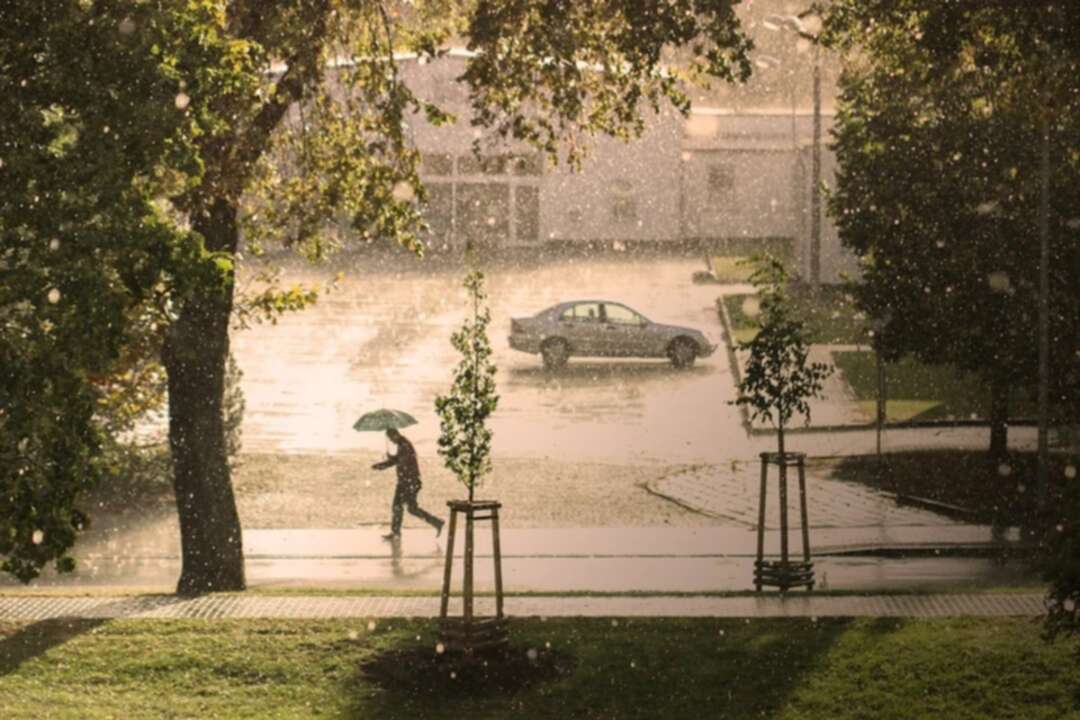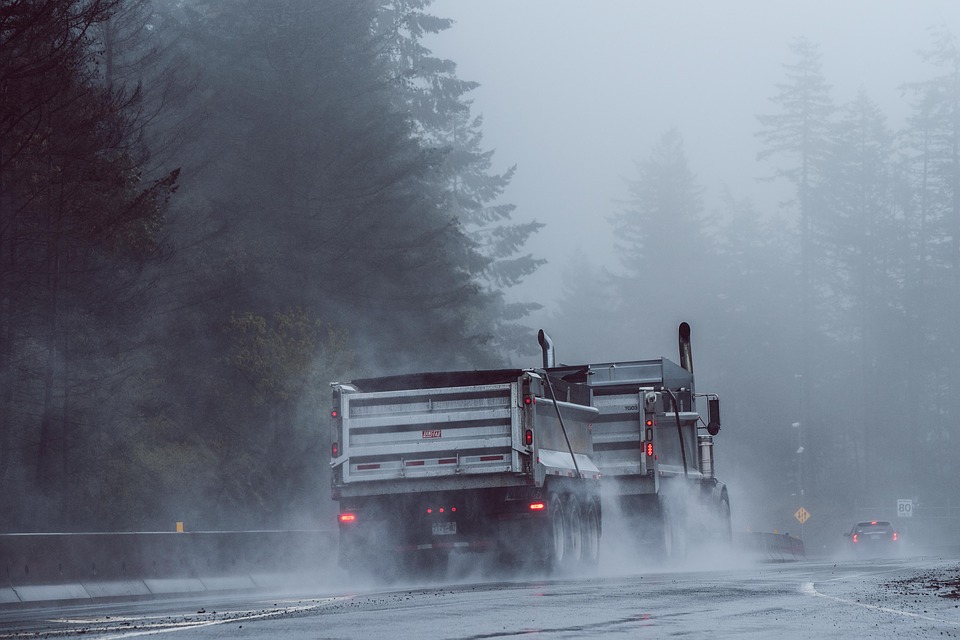-
Deadly storm severs road and rail links around Vancouver, Canada

The BBC reported that a deadly storm described by officials as a once-in-a-century weather event has severed road and rail links around Vancouver, Canada.
Two major highways connecting the West Coast city were closed after being damaged by severe flooding.
A woman was killed in a highway landslide, and rescuers say at least two other people are missing.
Thousands of people were forced to leave their homes due to the massive storm, which struck on Monday.
The woman's body was found in Lillooet, about 250km (155 miles) from Vancouver, according to the Royal Canadian Mounted Police (RCMP).
According to AFP news agency, RCMP Sgt Janelle Shoihet said that rescuers have not yet determined the number of "occupied vehicles that were lost in the slide."
 Canada-Vancouver island in winter/Pixabay
Canada-Vancouver island in winter/PixabayMotorist Kathie Rennie told CBC News she saw the landslide come down on traffic that was already at a standstill south of Lillooet.
Read more: UK government announces plans to boost annual exports
She said: "No sooner do we get back into our vehicles, the people that were in front of us are just screaming and running," adding, "The look on their faces, it was like a tsunami was coming. It was the scariest thing that I've ever seen.
"I just turned around, and I'm just watching the whole side of the mountain coming down and taking out these cars... everything just being swept away. Just complete panic."
The provincial minister of transportation, Rob Fleming, told a news conference it has been the "worst weather storm in a century".
Thousands of homes in British Columbia were evacuated after an "atmospheric river" dumped the region's monthly rainfall average in just 24 hours.
All 7,000 residents of Merritt, about 120 miles northeast of Vancouver, were ordered to flee their homes on Monday.
Snow fell on there on Tuesday, and cars could be seen floating in icy flood waters in town.
Helicopter crews were also sent to the mountain town of Agassiz to rescue about 300 people who became trapped on a cut-off road.
Read more: 3.1 magnitude earthquake rocks Scotland in early hours of the day
Monday's rains and winds had largely finished by Tuesday afternoon, but several communities remained stranded.
Part of the Trans-Canada Highway, which connects Vancouver to the rest of the country, was submerged under water.
A chunk of the Coquihalla Highway, which links Vancouver to the province interior, appeared to have crumbled into floodwaters.
Prime Minister Justin Trudeau told reporters in Ottawa he was monitoring the situation.
Mr Trudeau said: "We'll be there to help in any way, shape or form."
At one point the main available land route out of Vancouver was to enter the US and then return to Canada. However, re-entering Canada from the US requires a negative coronavirus test, and roads in the border state of Washington were also affected by the storm.
Read more: New defense strategy to help EU face migration crisis on EU-Belarus border
The port of Vancouver, the largest in Canada, was forced to suspend all rail access because of the flooding and landslides, halting shipments of food, fuel and other goods.
According to Reuters news agency, the port moves approximately C$550m ($440m) worth of cargo every day. Fuel pipelines in the area have also been turned off as a precaution.
It comes after British Columbia suffered a record high heat wave over the summer that killed more than 500 people, and wildfires that destroyed an entire town.
Earlier this month, a tornado was spotted in British Columbia - the first time one has been seen in the area in five decades.
Source: BBC
You May Also Like
Popular Posts
Caricature
BENEFIT AGM approves 10%...
- March 27, 2025
BENEFIT, the Kingdom’s innovator and leading company in Fintech and electronic financial transactions service, held its Annual General Meeting (AGM) at the company’s headquarters in the Seef District.
During the meeting, shareholders approved all items listed on the agenda, including the ratification of the minutes of the previous AGM held on 26 March 2024. The session reviewed and approved the Board’s Annual Report on the company’s activities and financial performance for the fiscal year ended 31 December 2024, and the shareholders expressed their satisfaction with the company’s operational and financial results during the reporting period.
The meeting also reviewed the Independent External Auditor’s Report on the company’s consolidated financial statements for the year ended 31 December 2024. Subsequently, the shareholders approved the audited financial statements for the fiscal year. Based on the Board’s recommendation, the shareholders approved the distribution of a cash dividend equivalent to 10% of the paid-up share capital.
Furthermore, the shareholders endorsed the allocation of a total amount of BD 172,500 as remuneration to the members of the Board for the year ended 31 December 2024, subject to prior clearance by related authorities.
The extension of the current composition of the Board was approved, which includes ten members and one CBB observer, for a further six-month term, expiring in September 2025, pending no objection from the CBB.
The meeting reviewed and approved the Corporate Governance Report for 2024, which affirmed the company’s full compliance with the corporate governance directives issued by the CBB and other applicable regulatory frameworks. The AGM absolved the Board Members of liability for any of their actions during the year ending on 31st December 2024, in accordance with the Commercial Companies Law.
In alignment with regulatory requirements, the session approved the reappointment of Ernst & Young (EY) as the company’s External Auditors for the fiscal year 2025, covering both the parent company and its subsidiaries—Sinnad and Bahrain FinTech Bay. The Board was authorised to determine the external auditors’ professional fees, subject to approval from the CBB, and the meeting concluded with a discussion of any additional issues as per Article (207) of the Commercial Companies Law.
Speaking on the company’s performance, Mr. Mohamed Al Bastaki, Chairman BENEFIT , stated: “In terms of the financial results for 2024, I am pleased to say that the year gone by has also been proved to be a success in delivering tangible results. Growth rate for 2024 was 19 per cent. Revenue for the year was BD 17 M (US$ 45.3 Million) and net profit was 2 Million ($ 5.3 Million).
Mr. Al Bastaki also announced that the Board had formally adopted a new three-year strategic roadmap to commence in 2025. The strategy encompasses a phased international expansion, optimisation of internal operations, enhanced revenue diversification, long-term sustainability initiatives, and the advancement of innovation and digital transformation initiatives across all service lines.
“I extend my sincere appreciation to the CBB for its continued support of BENEFIT and its pivotal role in fostering a stable and progressive regulatory environment for the Kingdom’s banking and financial sector—an environment that has significantly reinforced Bahrain’s standing as a leading financial hub in the region,” said Mr. Al Bastaki. “I would also like to thank our partner banks and valued customers for their trust, and our shareholders for their ongoing encouragement. The achievements of 2024 set a strong precedent, and I am confident they will serve as a foundation for yet another successful and impactful year ahead.”
Chief Executive of BENEFIT; Mr. Abdulwahed AlJanahi commented, “The year 2024 represented another pivotal chapter in BENEFIT ’s evolution. We achieved substantial progress in advancing our digital strategy across multiple sectors, while reinforcing our long-term commitment to the development of Bahrain’s financial services and payments landscape. Throughout the year, we remained firmly aligned with our objective of delivering measurable value to our shareholders, strategic partners, and customers. At the same time, we continued to play an active role in enabling Bahrain’s digital economy by introducing innovative solutions and service enhancements that directly address market needs and future opportunities.”
Mr. AlJanahi affirmed that BENEFIT has successfully developed a robust and well-integrated payment network that connects individuals and businesses across Bahrain, accelerating the adoption of emerging technologies in the banking and financial services sector and reinforcing Bahrain’s position as a growing fintech hub, and added, “Our achievements of the past year reflect a long-term vision to establish a resilient electronic payment infrastructure that supports the Kingdom’s digital economy. Key developments in 2024 included the implementation of central authentication for open banking via BENEFIT Pay”
Mr. AlJanahi concluded by thanking the Board for its strategic direction, the company’s staff for their continued dedication, and the Central Bank of Bahrain, member banks, and shareholders for their valuable partnership and confidence in the company’s long-term vision.
opinion
Report
ads
Newsletter
Subscribe to our mailing list to get the new updates!






















